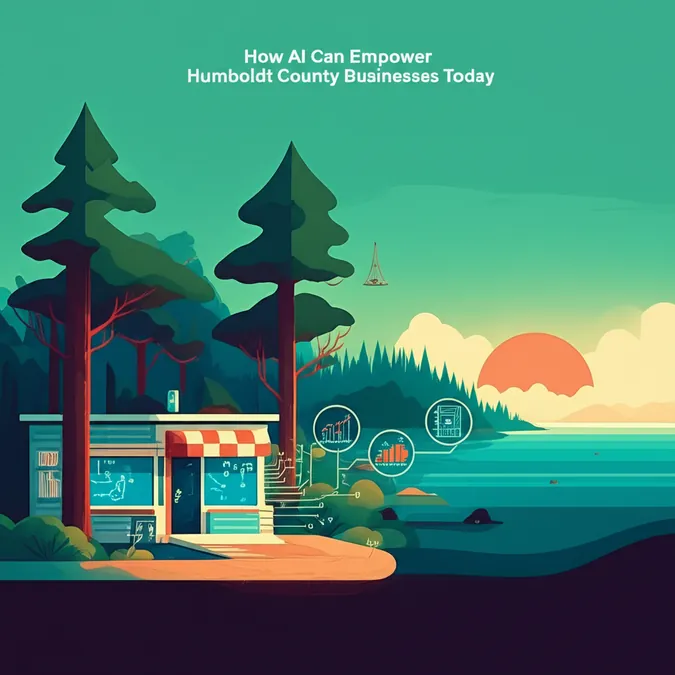Developer Offer
Try ImaginePro API with 50 Free Credits
Build and ship AI-powered visuals with Midjourney, Flux, and more — free credits refresh every month.
Boston Startup Unlocks Your DNA With AI Search
What if You Could Google Your Own DNA
Imagine asking deeply personal health questions and getting answers derived directly from your own genetic code. This isn't science fiction; it's the reality being built by the Boston-based AI startup, Bystro. Housed in the MassChallenge accelerator, Bystro is creating what its founders call a "ChatGPT for DNA," a platform where you can directly query your genetics to understand your health.
Instead of the broad and often frightening results from a generic health website—where a simple symptom can be linked to anything from a cold to cancer—Bystro provides hyper-personalized insights. You can ask specific questions like:
- Why am I not responding well to my medication?
- Why do I have high testosterone?
- Why do I have recurring cases of gout?
The platform combines the principles of genetic testing services like Ancestry.com with the power of modern search engines and AI to deliver comprehensible health information to researchers, doctors, and eventually, individuals. Co-founder Alex Kotlar believes that if the technology reaches its full potential, it could fundamentally “change precision medicine worldwide.”
The Visionaries Behind Bystro
The driving force behind Bystro is a team whose lives have been deeply intertwined with health and genetics.
CEO Alex Kotlar’s journey began as a child immigrant from Ukraine, whose family fled the Chernobyl nuclear disaster. Growing up with the knowledge of a 50% increased cancer risk and losing several family members to the disease, he was driven to understand the genetic underpinnings of health. This led him to pursue a Ph.D. in genetics at Emory University, where he conceived of a “Google-like search engine for genetics.”
At Emory, he met co-founder Cristina Trevino, who was immediately captivated by the idea of making complex genetic data accessible to everyone. “It shouldn’t be locked behind all of this software that’s just really hard to use,” she explained, highlighting the struggle to train technical experts in the field.
The trio was completed by Mason Alban, an actor with a passion for startups. His involvement became deeply personal after he used Bystro to investigate his own chronic health issues.

A Personal Health Mystery Solved by AI
For years, Mason Alban battled persistent lethargy, fatigue, gout, and hearing loss with no clear answers from doctors. When he ran his DNA through the Bystro platform, the results were transformative. The AI identified specific gene variants contributing to his hearing loss and another that affected his response to his prescribed gout medication.
Most surprisingly, he discovered he was lactose intolerant. After eliminating dairy from his diet, his long-standing health issues improved dramatically. “The company’s goal,” Alban stated, “is to give everyone agency over their health.”
How This AI Genetics Assistant Works
Bystro functions by analyzing complex genetic data and translating it into plain English based on user questions. It allows a conversational approach to data, where users can ask follow-up questions about genetic observations, disease risks, medication responses, and more. “A person doesn’t come with an instruction manual,” Kotlar noted. “If you’re actually doing tailored therapies... you have to be able to respond dynamically to that person’s unique profile.”
The company is currently in its early launch phase, with a rollout plan targeting researchers, then doctors, and finally individual consumers. They have already secured contracts with Emory University, UC Davis, and the Inflammatory Bowel Disease Genetics Consortium. The ultimate vision is for anyone to be able to send in a DNA sample and use the platform from home, though every response comes with a crucial disclaimer: these are research insights that should be discussed with a qualified physician.
The AI Revolution in Healthcare
Bystro enters a market experiencing explosive growth. The global AI in healthcare market was valued at $26.6 billion in 2024 and is projected to reach $187.7 billion by 2030, according to a Research Insights report. Massachusetts, a hub for both tech and medicine, is at the forefront of this trend. For example, Mass General Brigham is using an AI app to help diagnose patients who lack a primary care doctor.
However, this rapid adoption is not without controversy. Debates around ethics, potential inaccuracies, and data privacy are widespread. There is a tangible fear that AI could replace the nuanced expertise of human medical professionals.
Tackling Privacy in the Age of Genetic Data
Concerns about data privacy are particularly acute, especially after the 23andMe bankruptcy case put the genetic data of millions on the market. DNA is unchangeable and highly valuable to hackers, making its security paramount.
Kotlar is quick to address these fears. He emphasizes that Bystro was designed with privacy at its core. The platform does not hold onto users' raw genetic data. “It gets deleted right away,” he said. “It gets transformed into the way that Bystro needs it and then gets discarded. And the dataset that’s there is your dataset. It’s like you’ve uploaded something to Google Drive, and you can just delete it.”
He acknowledges that while it's tempting for companies to retain data for research, Bystro will not store sensitive DNA information on its servers until a truly secure method exists. “We won’t do that unless we have a safe way to do it.”
Compare Plans & Pricing
Find the plan that matches your workload and unlock full access to ImaginePro.
| Plan | Price | Highlights |
|---|---|---|
| Standard | $8 / month |
|
| Premium | $20 / month |
|
Need custom terms? Talk to us to tailor credits, rate limits, or deployment options.
View All Pricing Details

